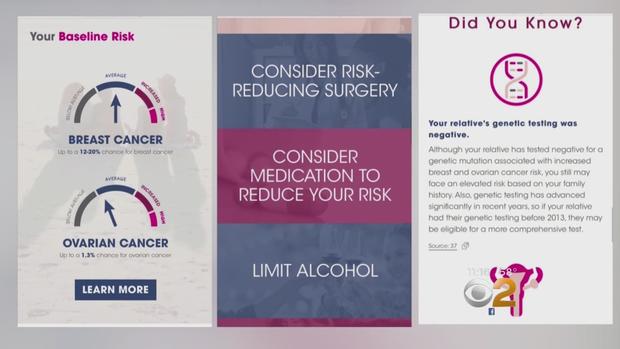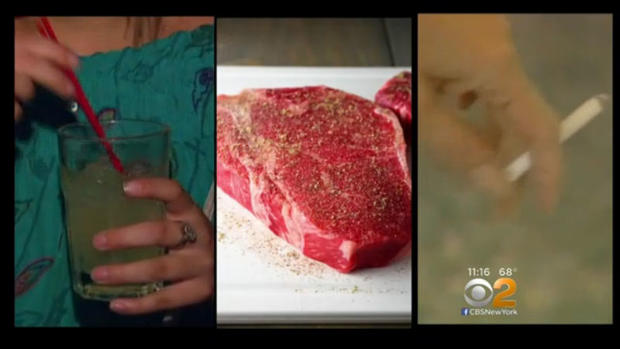New Weapon To Beat Breast Cancer Before It Begins
NEW YORK (CBSNewYork) – A personalized way to beat breast cancer may stop the disease before it even begins.
You answer these questions all the time, but never in regards to your breast and ovarian health.
The questions healthy mom Sara Roter answered are on a simple quiz called "assess your risk." They're common queries about lifestyle, plus personal and family histories, and more.
"It really does take you step by step to understand where you are," Roter said.
The information is aggregated to literally assess your breast cancer risk. Average, increased, or high risk assessments are made and provide personalized guidance to keep you healthy.
Katie Thiede is CEO of Bright Pink which powers the assess your risk tool.
ASSESS YOUR RISK: Click here
"An example of that would be… one serving of alcohol a day - that can increase your risk. If you're not exercising five times a week… if you're not getting enough vitamin D… there are a lot of things that women at average risk can do," Thiede explained.
These are all known risk factors, but when taken as a whole, provide a more clear picture.
"We will flag which of the risk factors you indicated that you might want to take a next step and you might want to consider," the CEO added.
"Anyone can come in to learn about their risk and if anyone is found to be at elevated risk they can stay in the program to come back annually for their surveillance," Dr. Tari King said.
The program that Dr. King is talking about is B-Prep at Brigham and Women's Hospital in Boston.
They assess similar information about weight, diet, alcohol, and family history. The program then provides information and interventions to participants to lower their risks.
FOR MORE ON B-PREP: Click here
For women with a known risk of breast cancer, there is the "Rise" program at Memorial Sloan Kettering.
"It's a clinic where we can provide education and information for risk reduction for this population," Dr. Melissa Pilewskie said.
Dr. Pilewskie is a breast surgeon who says the most frequent risk factor they see is family history, but the prescription to stay healthy is similar to other programs.
FOR MORE ON RISE: Click here
"The first are lifestyle modification," Dr. Pilewskie added.
That treatment is never one size fits all however, and other options include medication to reduce estrogen, and for the highest risk group, prophylactic mastectomy is considered.
"Nothing we can do will make that risk zero. Our goal here is to reduce that as greatly as we can," Pilewskie explained.
These programs also work closely with patients to remind them about self-exams and scheduled appointments.





